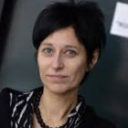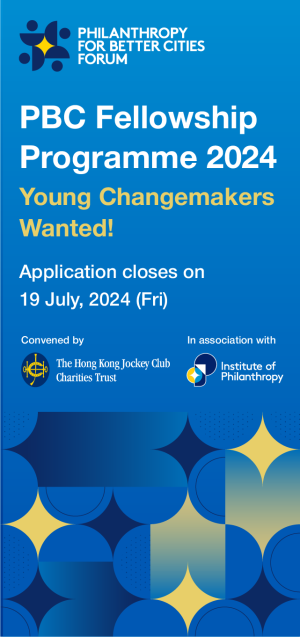During the Conference, I was looking for society, democracy, climate and philanthropy tracks in arts and culture.
The discursive part of the Conference program was arranged around four tracks: society, democracy, philanthropy, and climate. While arts & culture were not represented in any of the sessions specifically, some of the sessions included the voices from the field. The multidimensional nature of arts and culture and their ability to mesh into different discourses and take on a variety of roles beyond their aesthetic dimension gives us the possibility to explore four tracks through the arts and cultural perspective.
Society track
The networking part of the conference was fully developed around the arts and cultural programmes affirming arts and culture as the key connective tissue among people. The Covid-19 pandemic confirmed the important role of their contribution to the preservation and development of social cohesion and mental health. Although this topic wasn’t addressed officially within the Conference program, it was communicated in the sessions with voices from the field, and it was also discussed among members of the EFC’s Arts and Culture Thematic Network. In the beginning of the global lockdown due to the Covid-19 pandemic, the social networks became swarmed with a post suggesting that all who think artists are useless should attempt to spend quarantine without music, books, movies etc. This post called for reconsideration of the role of culture not only in a period of social distancing than also during the social recovery and regeneration as arts & culture can strengthen the sense of community, and be the main driver for social interactions. Since artists and cultural professionals found novel channels and modes of interrelating people with cultural and artistic work during the pandemic time (for example YoCanto Bohemian Rhapsody or YoCanto Viva la Vida de Coldplay), many studies and public discussions addressed that culture had a positive impact on the survival and cohesion of society since being in the conditions of loneliness and anxiety, and made a serious contribution to maintaining mental and social health.
Democracy track
Participation is a key element of democracy. In a time of democratic deficit and shrinking of public spaces, cultural policy, on its way to becoming inclusive and open, is facing a huge challenge in overturning the barriers in access to culture and overcoming the exclusive bourgeois, middle-class, and elitist behaviour on one side and popular and instrumentalized approaches on the other side. During the Conference, we had the opportunity to visit the venue Brunnenpassage that operates as a laboratory for transcultural and participatory arts providing access to contemporary arts to all parts of society, while promoting active participation in arts and culture as one of the high levels of participation that legitimize cultural development based on the democratic standard.
Climate track
Cultural policies are yet to develop strong ties with climate changes issues (for example, the Kone Foundation is the first organisation in the Finnish foundation sector to investigate the carbon footprint of its entire operations). It partly comes from the idea that culture produces a low footprint, and also from considering culture as irrelevant in combating the environmental crisis. However, contrary to these dominant beliefs, culture also participates in pollution and resource consumption. At the same time, culture has huge potential that can contribute to raising public awareness of the urgency of climate change, while cultural policy can contribute to the transformation of the creative economy and the adaptation of cultural infrastructure and can change the way of working and behaviour in the arts world. Nevertheless, climate change is a threat to culture and cultural rights because it does not receive sufficient attention in environmental and cultural policies. For these reasons, there are more and more frequent discussions and recommendations that set requirements for the implementation of comprehensive changes and adaptation in culture and recognize the positive potentials of culture as critical tools that can help create responses and implement policies related to climate change.
Philanthropy track
At the opening plenary one of the main messages was the necessity of taking the risk within philanthropy and providing support for systemic change of our contemporary society. For doing this we need a collective imagination that will help us to come out with the vision and dream for possible transformation of the system that will address inequality and climate urgencies. Arts, as one of the most innovative practices that open up space for experimentation, critical thinking and radical imagination, could be a great platform for testing new approaches in the philanthropic world. Moreover, systemic change and reinvention of the arts world can be used as an example of taking a radical shift in formulation and implementation of participatory, democratic and sustainable (cultural) policy. One of the great examples in that line is a campaign of making culture central in the EU’s Green and Sustainable Future CulturalDealEU initiated by the European Cultural Foundation, Culture Action Europe and Europa Nostra.
Dea Vidović is Director of Kultura Nova Foundation in Croatia.






Comments (0)